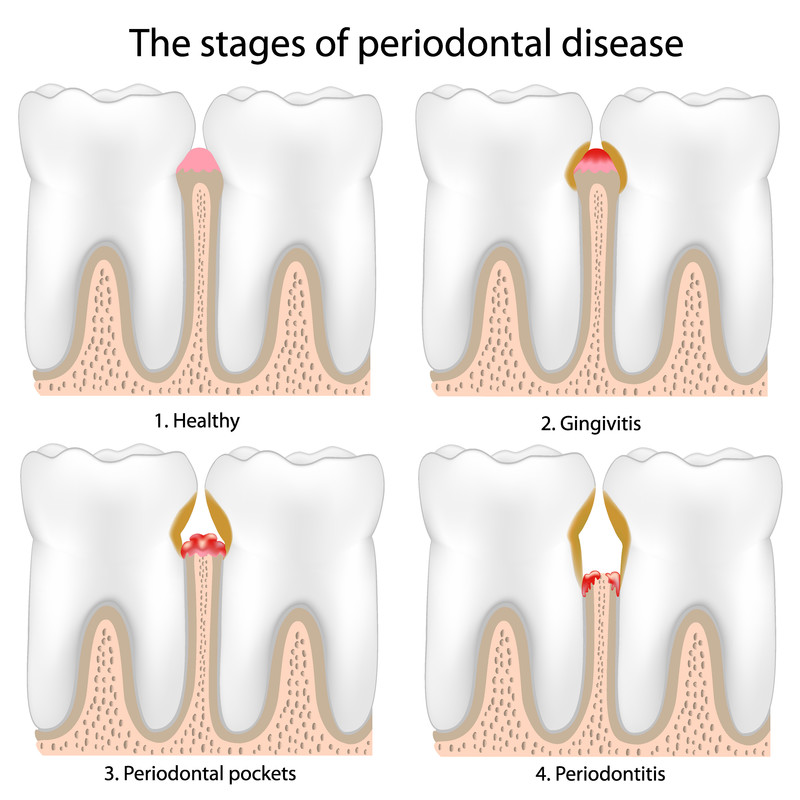Gum disease

Gum disease, or periodontitis, is an inflammation of the gums and supporting tooth structures affecting 8 out of 10 adults over 35 in Ireland. Gum disease varies greatly in symptoms and severity from bleeding, swollen gums to wobbly teeth and eventual tooth loss.
Many things affect the health of your gums including hormones, genetics, certain medical conditions (eg diabetes), smoking, sugary foods and drinks and insufficient oral hygiene.
Prevention:
Good oral hygiene is most important - brushing teeth morning and evening after eating using a fluoride toothbrush helps to brush away the bacteria that lives in sticky plaque which adheres to teeth, causing acid attacks, tooth erosion and root damage. Flossing daily is also vital to remove plaque from areas your toothbrush cannot reach. If you are unsure how best to brush or floss your teeth, your dentist will be delighted to show you.
Do not smoke as this vastly reduces the gums ability to heal themselves and results in gum disease. For help in giving up smoking please visit the following website: www.quit.ie.
Regular 6 monthly check ups with the dentist also helps to detect and treat any early signs of gum disease.
Treatment:
The mildest form of gum disease can usually be treated with good brushing and flossing techniques, but sometimes plaque or tarter buildup occurs and can be very difficult to remove fully using a toothbrush. If this is the case, your dentist may recommend a scale and polish to remove this.
If you have gum disease that is more advanced, the dentist may recommend you see the hygienist for deep cleaning/root planing. This involves numbing the gums so that the root surface of the teeth can be cleaned thoroughly. Severe gum disease is treated by specialist dentists, Periodontists, on a referral basis, if required.
